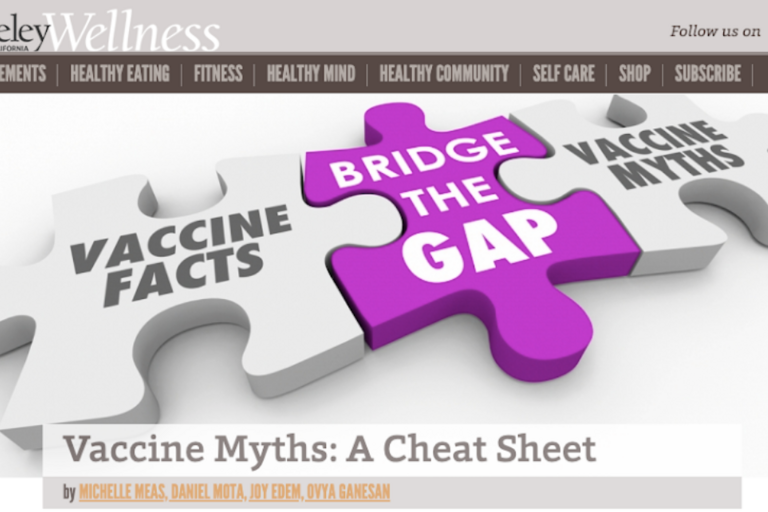Using the rapid increase in the global measles outbreak in 2019, this course explored a great irony: In spite of the fact that the vaccine against measles is amongst the safest and most effective of all vaccines, we are having increasing outbreaks of this disease. This course is been updated since Spring 2020 to address the COVID-19 pandemic. Visit "COVID-19, Vaccine Hesitancy, and the Public's Health" for the seminar's newest iteration.
Teaching Team
Instructor: John Swartzberg, MD, Clinical Professor Emeritus, School of Public Health
Co-Instructor: Sam Davis, Professor Emeritus, Architecture, Former Dean of the School of Social Welfare
Countries such as Great Britain that had eliminated measles have regressed and no longer hold this status. The reason for this is that too many people are electing not to immunize their children.
This course started with a series of discussions about basic principles. This included an introduction to the virus that causes measles, measles epidemiology, pathogenesis, clinical manifestations, diagnosis, and treatment; the history of vaccination; and a general discussion about how vaccines work. The next section of the course addressed the phenomenon of vaccine hesitancy and opposition. It explored its many aspects through the disciplines of history, sociology, social welfare, anthropology, philosophy, literature, journalism, public health and law with invited guest speakers from some of these disciplines. The third section of the course looked at how our society is currently addressing this issue and explore what tools are available to address it in different ways. The final section of the course focused on supporting students with the development a position paper titled Vaccine Myths: A Cheat Sheet published in the “UC Berkeley Wellness Letter" (see the sidebar on Vaccine Myths for the cover of the published paper).
This course was offered as an undergraduate seminar in the Spring 2020.

